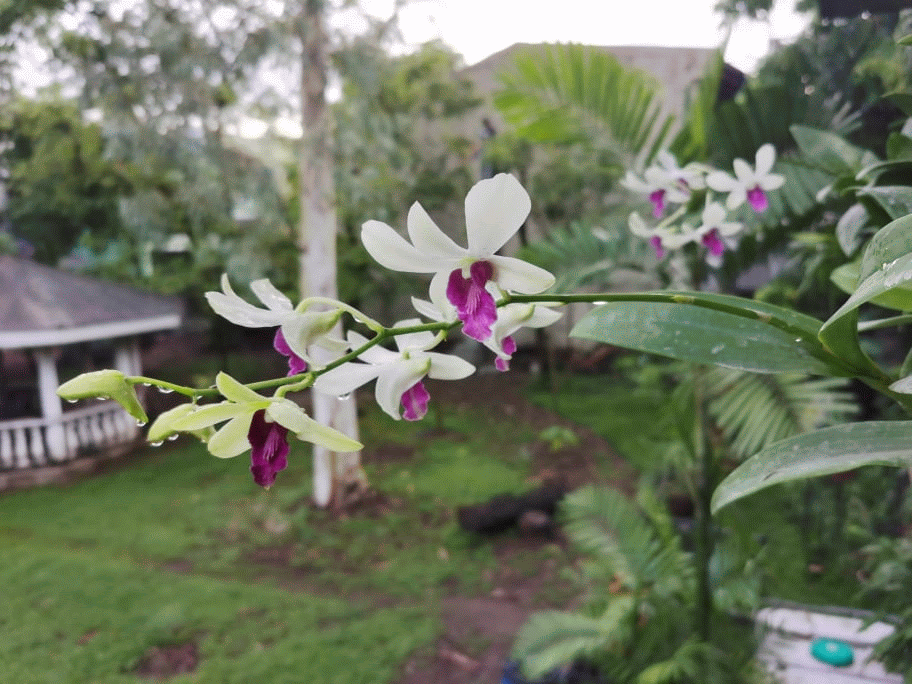BISA'G HINAY BASTA KANUNAY
[Eleventh Sunday in Ordinary Time]
“Of its own accord the land yields fruit, first the blade, then the ear, then the full grain in the ear. And when the grain is ripe, he wields the sickle at once, for the harvest has come.” (Mk. 4: 28-29)
In this past year during the lockdown, I find joy in taking care of plants —mainly vegetables in the garden (eggplants, okra, tomatoes, etc.) but also some few orchids and flowering plants outside my terrace. The growth is slow, almost imperceptible. One day, it will just surprise you with flowers, and later on with fruits. But that would take some time not at the click of one’s remote control.

That gradualness in fact excites me; it gives me joy as I wake up each morning. It also makes me pray with gratitude and peace. Because once they bear fruit, they can go on and on — to the joy of our kitchen staff and companions who are as excited as me.
I have lived with poor farmers in my childhood and I can now imagine their anticipation, excitement and joy as they patiently wait for the corn to grow — from seeing the small seedlings to the blades, from the ears to the full grain. The joy is not only in the harvest; it is in the silent contemplation as they grow slowly, gradually, gently.
We have a saying in Cebuano: “Bisa’g hinay basta kanunay” — roughly translated as “slow but sure”.
Actually that translation is not quite accurate. Because the result is far from certain and sure. The growth is always precarious, fragile and insecure — the rains won’t come and the plants would die; or the typhoons may come and wash them away. So that anticipation is not self-assured. It can only come with a prayer for the God who sowed the seeds to faithfully stay and ensure the harvest — “pagkamakanunayon”, as Cebuanos would translate that God-like fidelity.
But the gradualness is healing and salvific.
St. Paul talks about feeding us with milk, not yet solid food, for we are not ready for the latter yet (1 Cor. 3: 1-3). We are still “infants in Christ”; of course, he was hoping that we mature in the way of Jesus. But the compassionate understanding on where we are is a healing experience.
The “law of gradualness” has a long history in Christian moral theology. It has come back during the recent Synod on the Family (on the issue of cohabitation, civil marriage, divorced and remarried Catholics) in Amoris Laetitia 294-295. Pastoral care means to take people from where they are, understanding their situations, encouraging their growth rather than condemning their flaws.
Pope John Paul II proposed the so-called “law of gradualness” in the knowledge that the human being “knows, loves and accomplishes moral good by different stages of growth”(cf. Familiaris Consortio 34).
Humans as we are, we do not jump into perfection overnight. I doubt whether we jump into perfection at all. We grow gradually if ever, little by little, slowly not even surely. Two steps forward, one step backward. Sometimes, it is the other way around. Ours is a religion of compassion, not of perfection.
I remember something in my philosophy days. I paraphrase what the French philosopher, Paul Ricoeur, says: it would have been nice if we achieve what is “most humanly desirable”. But since all of it is not really attainable, not just now, we settle for the “most humanly possible”.
And God in his/her inexhaustible mercy — in the mystery that God is — slowly and gradually guides us to harvest.
I also see this imperceptible growth around — people who despised drug war victims begin to listen and take care of them; rabid DDS friends slowly realize that something is wrong with this government that they have promoted all along; that Duterte is not their longed for messiah after all; and the victims themselves, who cower in fear, begin to speak up and fight. Slowly, gradually, imperceptibly.
Bisag hinay basta kanunay!
Daniel Franklin Pilario, CM
St. Vincent School of Theology
Adamson University
danielfranklinpilario@yahoo.com
06.13.2021


